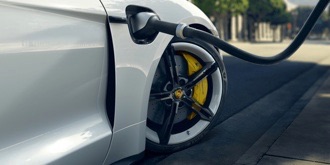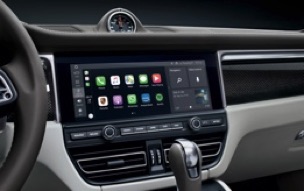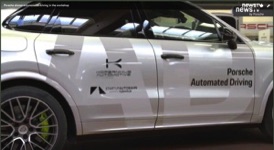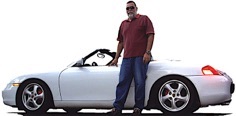Published in the August 2021 issue of “Die Porsche Kassette”
Ⓒ2021 Technolab / PedrosGarage.com

For more information about the future of the auto industry and Porsche, please visit my website: www.PedrosGarage.com.
Happy Porsche'ing,

The auto industry is changing at an incredible pace and actually mirroring trends in other industries.
It used to be that automobile manufacturers were mammoth conglomerates that dictated their own paths and controlled their own future.
The traditional business model of designing, manufacturing, selling, servicing and financing vehicles still continues, but the industry is speeding towards a new frontier mainly guided by sustainability, and changing consumer behavior.
Because of this, manufacturers now collaborate with tech giants, they work closely with audio moguls and augmented reality experts and we can see how these collaborations with advanced technologies are making their way into our cars and our car culture.
This trend, which actually started in 2018, together with the ever-decreasing emission standards have made vehicle production costs increase.
This higher cost produced a reduction in car sales in 2019, which was worsened by the global pandemic and its aftermath in 2020.
Now, in 2021 but with 2022 models ready to go into production, manufacturers are embracing these technologies more and more in order to increase sales.
Lets take a look at some of the industry trends in more detail:
• Electrification
Probably, the biggest trend for the last 20 years, and this is just the beginning. Toyota started the trend in 2000 with the successful introduction of the hybrid Prius, then Tesla with it’s full electric line of vehicles changed the way people view electric cars.
Porsche was quick to realize the trend and started working on its strategy for 2025 and along them, Audi, Mercedes Benz, and most other manufacturers which are introducing or working on new electric platforms, even Ferrari.

• Connectivity
When we were kids we followed with keen interest the displacement in liters of our Porsches, which slowly grew from the 1.1L flat-4 of the early 356s to the latest 4.0L flat-6 powerhouses of the new GTs (GT3, GT4, GTS). But nowadays buyers are more concerned with how big the infotainment screen is and whether it has Apple CarPlay or not and whether they can access their Pandora account from their car.


• Self-Driving ability
Automated or assisted driving is another of the rising trends in the industry.
Car buyers cautiously embrace safety-focused semi-autonomous driver aids but have been slow to accept the prospect of handing the steering wheel and all controls completely to the car’s computer(s).
This one is not without controversy. Some believe that the age of fully automated, self-driving taxis is just around the corner, while others believe that in order for cars to drive by themselves safely it will take many, many more years.
• Usage-Based Insurance
Insurance companies which now have access to incredible amounts of data from our vehicles, have been able to re-assess their risk and have started introducing new policies based on distance travelled by the vehicle, the car’s category, and the driver’s background (including health, habits and age) even attaching data acquisition devices to the customer’s vehicle in order to customize their coverage.
All of theses trends are reshaping our ever-changing way of life. They will transform the car into a platform, where drivers evolve to riders, reframing “driving” as the synonym of well-being and convenience.
Is this the future? Who knows?
In doing research for this article I came across the flowing quote:
To the question of whether the Porsche brand faces conflict between innovation and tradition, Knuth Walczak, Porsche’s head of the Innovation and Preliminary Development Management said:
“We don’t define the Porsche brand of the future – instead, It is the Porsche brand that has defined our focus. We have the fascinating job of continuing to build authentic sports cars. I’m certain that the technologies of the future will not cool down the hot, fascinating core of the Porsche brand but instead will heat it up even more”.
Most of the articles and news releases relating to the future of the auto industry and future of the sports car that I read were about the above mentioned trends and how cars and the auto industry would evolve and modernize as it embraced the future. Only Porsche, referring to the probability of introducing a 911 Hybrid, promised that “it will be extremely powerful but still a fantastic driver’s car as it has always been”.
I hope and believe that Porsche will keep those promises of maintaining tradition and heritage very present in their near-future, electric, self-driving, connected sports cars.
A few of us (fewer and fewer every year) still perceive pure enjoyment from driving our old, analog, disconnected Porsche.
Heck, some of us still like to shift our own gears using heel/toe.

